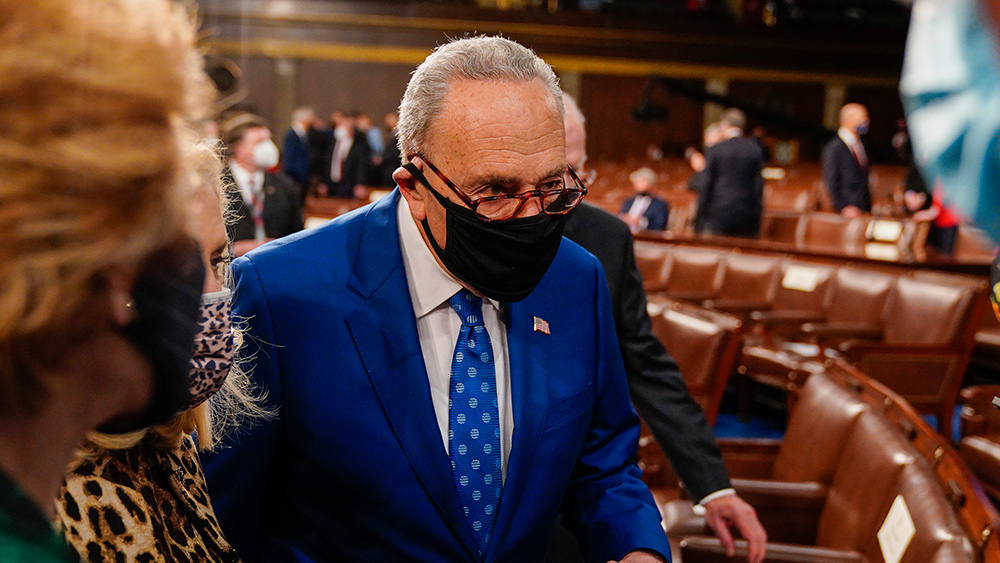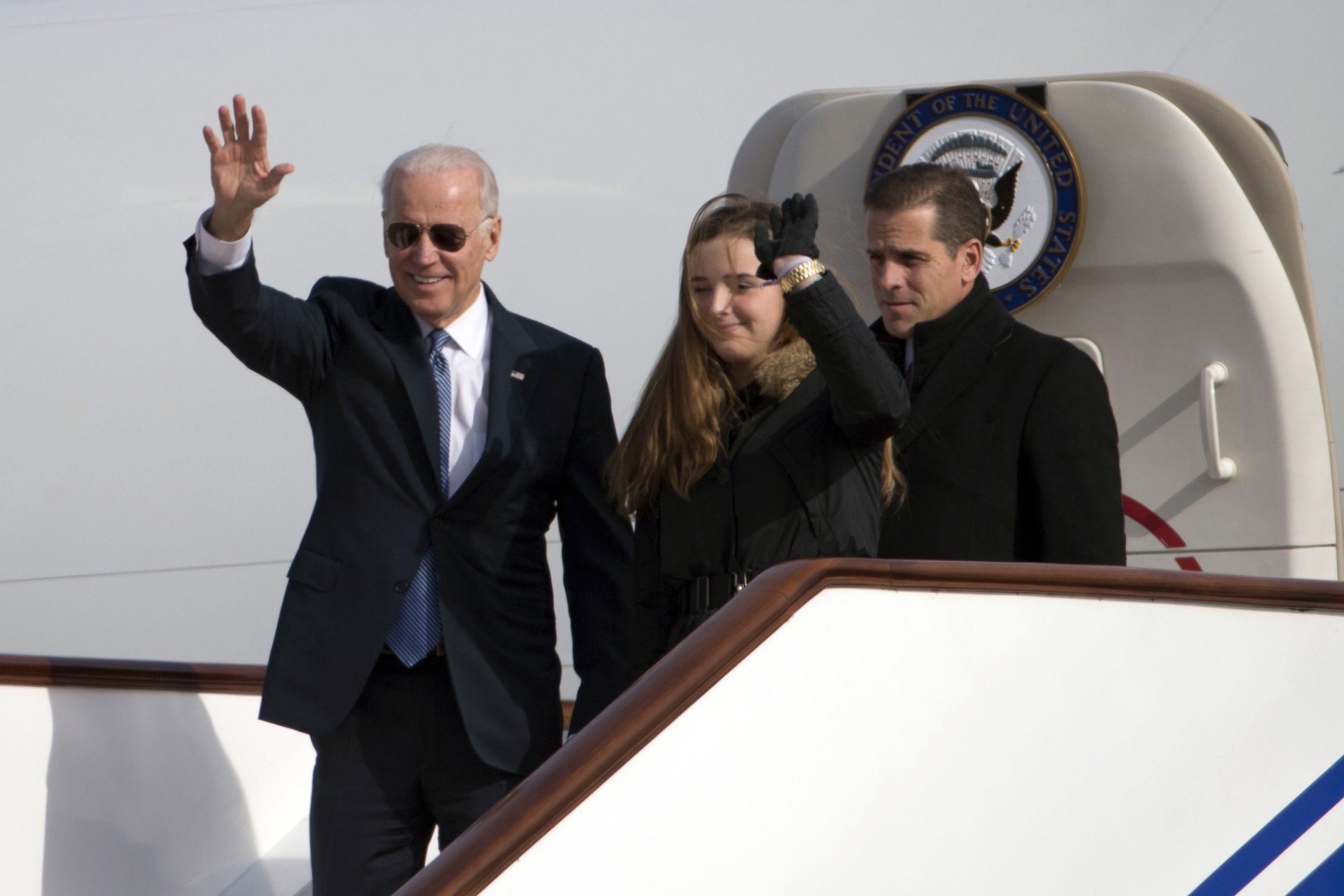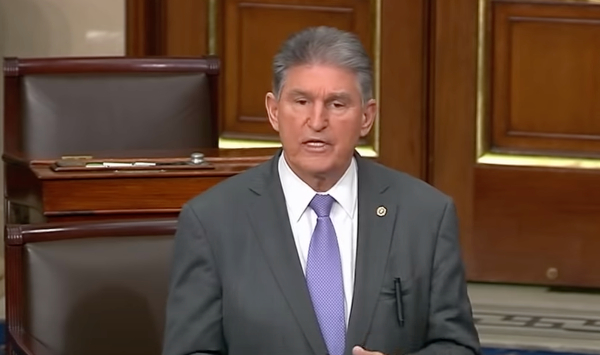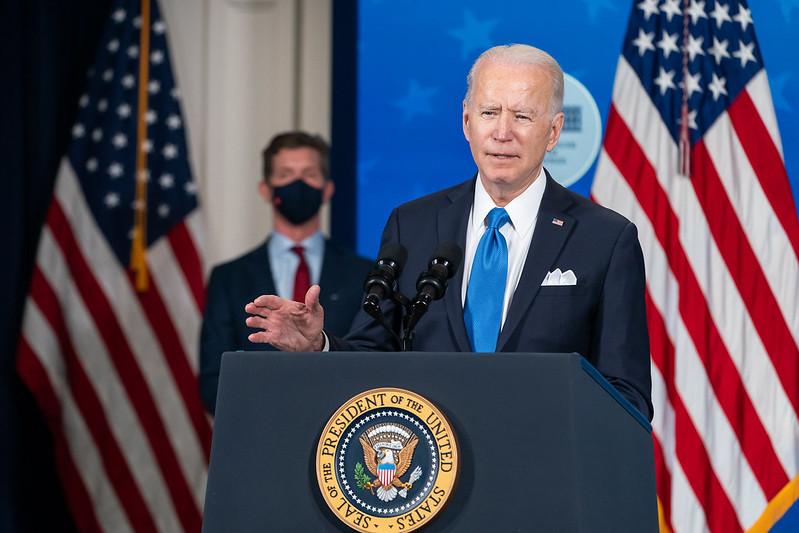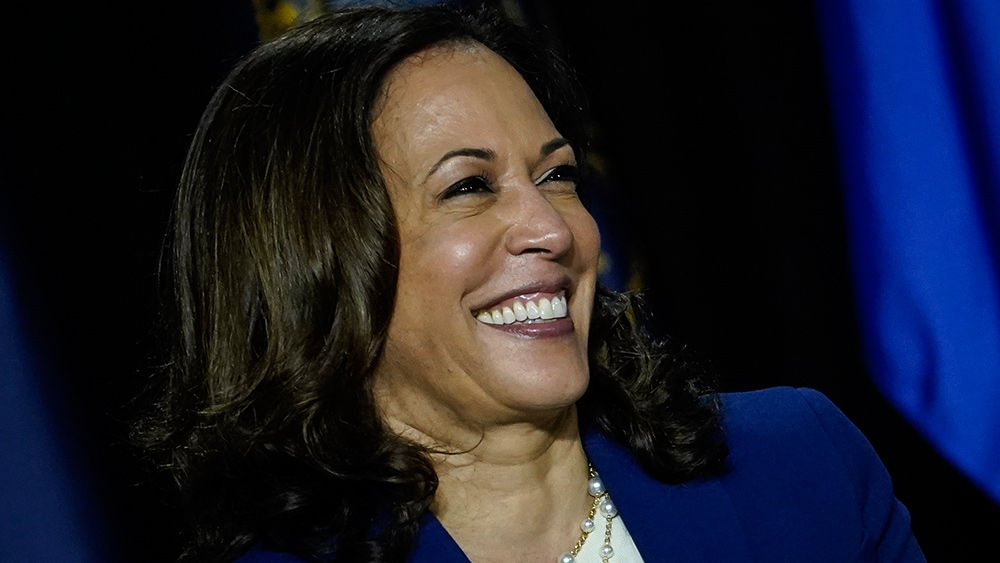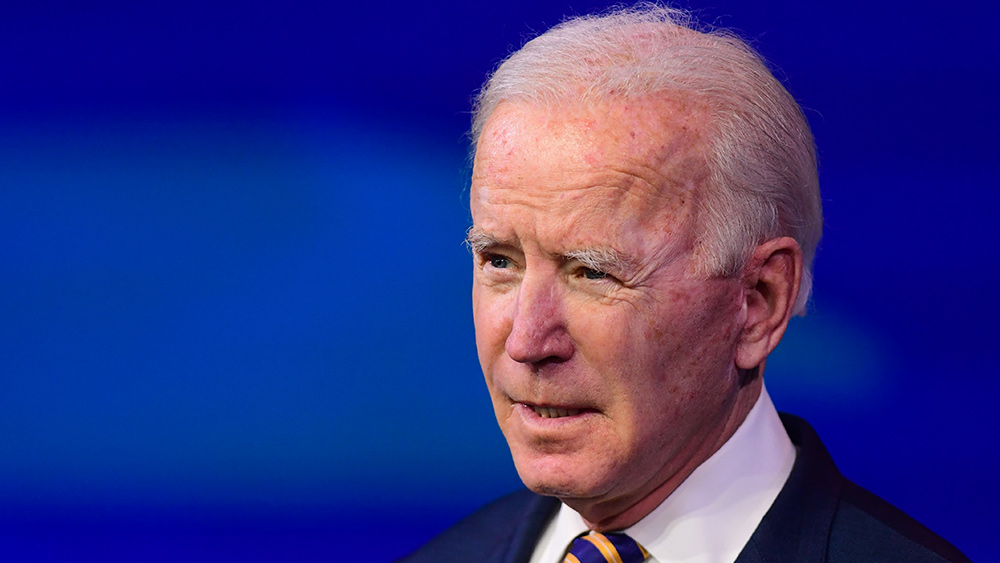Biden scraps policy requiring universities to disclose dealings with China
02/12/2021 / By Nolan Barton

President Joe Biden has scrapped a policy mandating that colleges and universities disclose all dealings with the Chinese government and its Confucius Institutes.
The policy was enacted by former President Donald Trump to encourage transparency amid growing evidence that Chinese Communist Party (CCP) propaganda was infiltrating America’s education system. Under the policy, institutions that failed to comply would lose certification for the Student and Exchange Visitor Program.
Documents from the Office of Information and Regulatory Affairs confirmed that Biden scrapped the policy on Jan. 26.
In 2018, Trump signed the National Defense Authorization Act. As part of this bill, Sen. Ted Cruz placed a provision prohibiting funding to the Chinese-run Confucius Institute on American campuses. Based on previous reports, all but 10 of the 75 Confucius Institutes in the U.S. were located on a university campus.
Many schools have closed their Confucius Institute since, according to Human Rights Watch. Among that shut down their Confucius Institutes were Arizona State University, University of Oregon, Western Kentucky University and Indiana University. (Related: Pompeo: All Beijing-run Confucius Institutes in the US could be closed by year-end.)
But multiple institutions being scrutinized by the Department of Education have reportedly refused to provide internal documents. These documents are thought to contain evidence of undisclosed financial grants from the Chinese government.
Those institutions no longer need to provide those documents now, thanks to Biden’s move to scrap the policy enacted by his predecessor.
Confucius Institute labeled as national security threat
U.S. intelligence agencies have previously labeled Confucius Institute as a national security threat.
Several universities have since trashed the programs, but many are still allowing what has been described as Chinese propaganda centers to operate on their campuses. This is despite warnings from intelligence officials that the CCP is using them to infiltrate U.S. society and indoctrinate Americans.
“The level of naïveté on the part of the academic sector about this creates its own issues,” warned Federal Bureau of Investigation (FBI) Director Christopher Wray to Congress in 2018. “They’re exploiting the very open research and development environment that we have, which we all revere. But they’re taking advantage of it.”
While the academic sector appeared to be napping, the government authorities have been unrelenting.
In January, the Department of Justice arrested a Harvard professor, as well as two Chinese nationals for reportedly acting as foreign agents. Over the summer last year, the department also announced multiple criminal actions against Chinese researchers, including professors at Texas A&M University, the University of Arkansas (UArk) and the University of California system.
An engineering professor at the UArk was also arrested by the FBI and faces up to 20 years in prison for allegedly hiding funding that he received from the communist Chinese government.
Republicans in Congress also expressed concerns that China is attempting to hinder U.S. coronavirus research by infiltrating universities in the country.
In May last year, the FBI issued a public service announcement warning of the Chinese government’s intention to steal American medical research in its quest to find a cure for the coronavirus.
Gordon Chang, an expert on U.S.-China relations and author of The Coming China Collapse, told Campus Reform that “estimates put the annual theft of American intellectual property at somewhere between $150-600 billion a year.”
“Some of that actually takes place on American college campuses. China has bought a number of college professors, a number of them have been fingered by the FBI and they’re pending investigations, and Chinese students have been engaged in activities … for instance, downloading entire databases for China,” Chang said.
Chang also noted that the Confucius Institutes “report in reality to the Communist Party’s United Front Work Department. That means these are attempts to subvert other countries.”
“The U.S. is not permitted to have institutes like this in China. You don’t have a Lincoln Center or Roosevelt Institute … we know that propaganda is absolutely critical to totalitarian regimes.” Chang said.
“They want to put forth narratives and restrict what is said about China on American campuses. You’ve got to remember that the Chinese regime is deeply racist with its Han nationalist ideology. This is something we haven’t quite seen since The Third Reich.”
On Aug. 13 last year, the Department of State required the Washington-based Confucius Institute US Center (CIUS) to register as a foreign mission, a designation that requires that the organization regularly provide information to the State Department about its personnel, recruiting, funding and operations in the U.S.
It was part of the Trump administration’s broader concern that the CCP is using American university campuses to engage in espionage, spread propaganda and promote censorship.
At that time, CIUS described itself on its website as a registered U.S. non-profit organization that promotes a network of Confucius Institutes, which typically sponsor educational, language and cultural programs.
A State Department statement said the new designation is “recognizing CIUS for what it is: An entity advancing Beijing’s global propaganda and malign influence campaign.”
The Global Times, an English-language newspaper published in China and owned by CCP mouthpiece the People’s Daily, dismissed the move as part of Trump’s re-election effort “to play the ‘China card’ to shift domestic problems to win votes.”
Universities from other countries cut ties with Confucius Institute
The Trump administration was hardly alone in scrutinizing Confucius Institutes. In May last year, Sweden closed its last remaining Confucius Institute, citing an increasingly strained relationship with China.
The University of Hamburg in Germany cut ties with its Confucius Institute by the end of last year, citing risks associated with “political influence and information leak.”
A Belgian university in December last year said it would end its contract with the Confucius Institute just months after Belgian authorities banned the head of the campus-based office from re-entering the country for national security reasons.
According to the website In the Name of Confucius, there have been at least 64 universities, two governments and one school board around the world that have cut ties with Confucius Institute as of 2020.
Follow JoeBiden.news for more news and information related to Joe Biden and his administration.
Sources include:
Tagged Under: China, Chinese Communist Party (CCP), Confucius Institutes, Federal Bureau of Investigation, Office of Information and Regulatory Affairs, President Donald Trump, President Joe Biden, State Department, Student and Exchange Visitor Program, U.S.-China relations
RECENT NEWS & ARTICLES
COPYRIGHT © 2017 WHITE HOUSE NEWS





